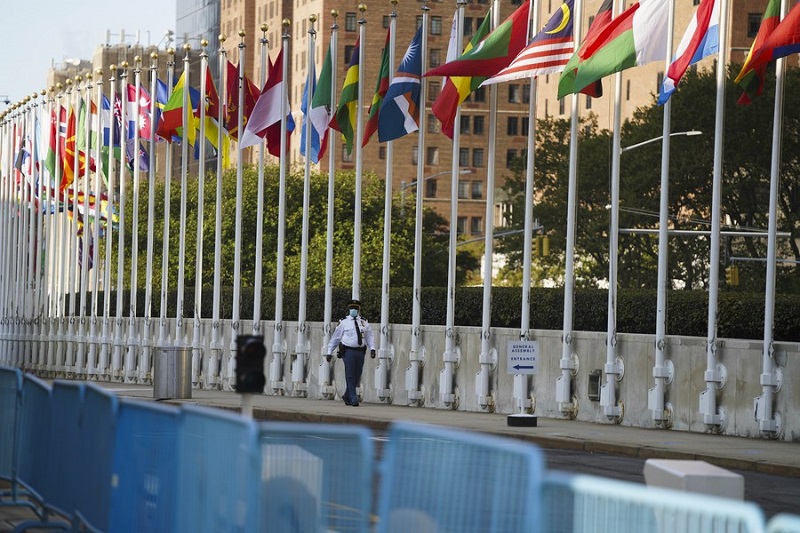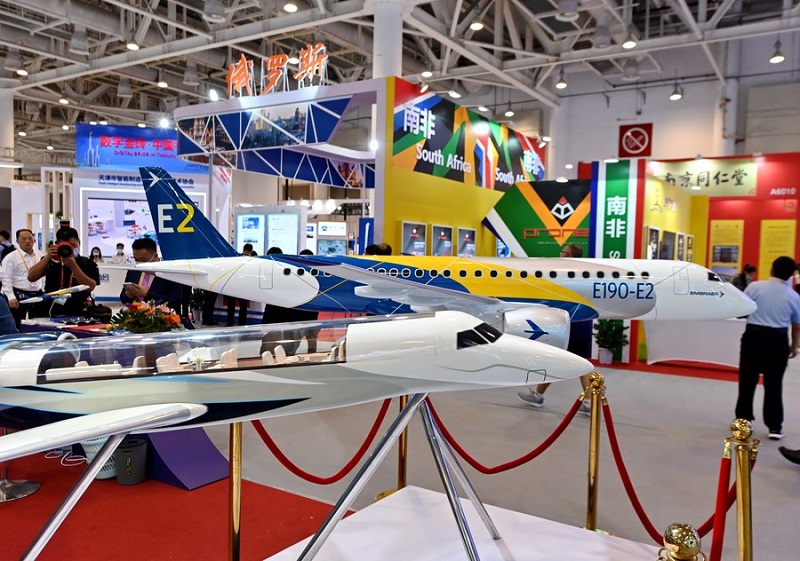Editor’s Note: Will the world become unipolar or multipolar? How will emerging countries like BRICS play their roles in a changing world? Natalia Pomozova, Assistant Professor of the Department of Contemporary East of the Russian State University for the Humanities, shared her insights into these questions at the Seminar on Governance 2021 held in Beijing in early November. The excerpts of her speech are as follows.
Today we are witnessing rapid and unprecedented changes unparalleled in the past. They are mostly associated with new forms of communication, the development of cyberspace, artificial intelligence, lightning speed of information transfer. The world is changing before our eyes so quickly that people do not have time to comprehend these changes.
The state of affairs in the international arena has also changed. It has long been clear to everyone that multipolarity is the only possible form of the world order. All states without exception are aware of this, even if someone tries to deny it. In expert and scientific circles, the point of view of bipolarity has recently become widespread — on the one hand, the United States, the superpower and its allies, and on the other hand, the rapidly developing China, which has already overtaken the leader in some economic indicators. The rest of the countries will allegedly be forced to join one or another camp, based on their economic benefits or the principled value beliefs.
However, this view of things seems overly simplistic. We see how the countries of Europe, for example, are trying to balance cooperation with China and America, and how their relations with the United States, bound by NATO allied commitments, are becoming increasingly fragile. We are witnessing how the authority of the United States in the world as a reliable partner of loyal political elites is crumbling before our very eyes. One can cite the example of Georgia and the conflict in Ossetia, the example of the Ukrainian, Venezuelan crises, and, of course, the recent case when, as a result of the withdrawal of American troops from Afghanistan, President Ashraf Ghani had to seek refuge in the United Arab Emirates.
If we imagine the world as bipolar, then what about such centers of power as Russia, India, ASEAN, BRICS, and the European Union? I am sure that neither Russia, nor Vietnam, nor South Africa, nor other poles of the multipolar world will agree to lose their self, their identity, adhering to one camp or another.

A security guard patrols at the United Nations headquarters in New York, Sept. 22, 2020. (Photo/Xinhua)
The world is multifaceted and diverse, and states, peoples are ready to go to great lengths in order to protect their uniqueness and identity. The paradox is that with all the cultural and social diversity that we see today, the economies of countries have never been so inter-dependent. Today, when something happens on the stock exchange in Hong Kong or Germany, information about it becomes available immediately, and this affects the global stock market, people and companies around the planet instantly react to this impulse, setting the subsequent dynamics. If China’s economy slows, it produces and exports fewer goods, invests less in overseas projects, and this affects people around the world, their jobs, their right to work and to a well-to-do life.
A popular measure of economic coercion at the suggestion of the United States has recently become an instrument of sanctions pressure. Russia and China are well aware of this. But the paradox is that sanctions are harmful not only for the country in which they are applied, but also for the country which imposes them. Not to mention the fact that the sanctions are inhuman — not the elites do suffer from them, the main blow falls on ordinary people. If we are talking about values, then what could be more valuable than a person and his right to work and earn money for a normal life?
The hopes that the COVID-19 pandemic will force countries to unite in order to solve more important tasks, for example, ensuring the main human right — the right to life, and the sanctions issue will fade into the background, did not come true. There are even more sanctions now than we used to have before the pandemic. More and more often, one can hear ideas on the Russian foreign agenda about the need to protect oneself with a fortress in order to focus on internal development, thus trying to reduce the risks of sanctions pressure. But the problem is that internal development in a world of global economic interdependence cannot be accomplished alone.
But there is another way — the way of equal dialogue and mutual respect, strengthening the multipolar world and striving for creative cooperation — these are the principles underlying the unification of the BRICS countries.

Photo taken on Sept. 8, 2021 shows models of jets during an exhibition on BRICS New Industrial Revolution held in Xiamen, southeast China’s Fujian Province. (Photo/Xinhua)
If we talk about bipolarity, then it would be more appropriate to divide the world not into East and West, supporters of Chinese or US policy, but into developed and developing countries, those who are richer and those who are poorer. The problem of the North and South is already great and tends to aggravate.
If states all around the world continue to pursue selfish policies, demonstrate a lack of the ability to seek consensus, and are consumerist about cooperation with other countries, trying to dictate their terms to them from a position of strength, all this, against the backdrop of climate change and global demographic trends, it will lead to disaster. Peoples and countries understand it well.
In this regard, talks have intensified about the prospects for the expansion of the association and the entry of new countries into it. BRICS +, in addition to providing greater freedom of choice when seeking additional funding sources in emergency situations, can play an important role as a platform for coordinating anti-crisis activities in the Global South, which has demonstrated its particular vulnerability during the COVID-19 outbreak.
Supporting the central role of the UN in international affairs, the goals and principles of the UN Charter; commitment to multilateralism, the formation of a more honest, just, equitable and representative multipolar world order — all these are the pillars on which the union was created. Its member states should not only adhere to these principles, but also become their conductors in the world of global politics.
BRICS, which accounts for almost a third of the world’s GDP, is an organization with enormous potential. It should be implemented, first of all, in terms of helping to improve the standards and quality of life of the peoples of the “five” countries, which naturally, in the context of global economic interdependence, will have a positive effect on the development of countries outside the union.
That is why it is extremely important to accept the indisputable fact of the diversity of cultures, historical experience, development paths and models of public administration. Who but the BRICS, which includes five large regional states representing four continents and the largest civilizational areas, is able to demonstrate to the whole world an example of equal cooperation based on mutual respect?